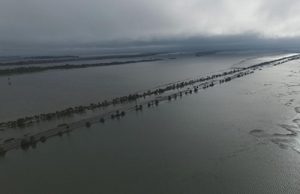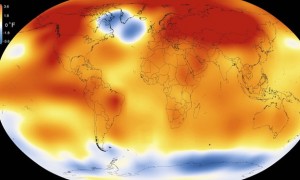Fifty years ago today, we lost this man
Fifty Years In
 Like smartphones teach us to be dumb – to not know things, to not be able to find our way except by using the device – we are also learning how to forget the past. Or how to remember it inaccurately, disconnected from the forks in the road where our path darkened and we lost something irretrievable, something we did not make nor deserve but that came from us and birthed us, was us, the best and the worst, that pushed us in the right direction because we were scared to go on our own until we learned we could pull ourselves there if we could just join enough hands.
Like smartphones teach us to be dumb – to not know things, to not be able to find our way except by using the device – we are also learning how to forget the past. Or how to remember it inaccurately, disconnected from the forks in the road where our path darkened and we lost something irretrievable, something we did not make nor deserve but that came from us and birthed us, was us, the best and the worst, that pushed us in the right direction because we were scared to go on our own until we learned we could pull ourselves there if we could just join enough hands.
April 4, 1968, the Lorraine Motel, Memphis, TN, the alternately riotous and trippy sixties, the whole twentieth century, came crashing to a sudden end.
Now, 50 years into the 21st we wonder how long it’s going to last. This should not be our mindset; it wasn’t his. Is there an ideal that’s not an ideology? Is there optimism greater than hope?
Can we contemplate the breadth of shared possibility? How much justice will the market allow? The answers are not in your phone.
Let’s Have the Debate
 There is no silver lining for what’s coming down the pike, so don’t mistake this for any semblance of that. The lining is all sh*t, with 5,000-count sh*t thread lapels and sh*t-stuffed pockets and 5-karat, sh*t-gilt buttons.
There is no silver lining for what’s coming down the pike, so don’t mistake this for any semblance of that. The lining is all sh*t, with 5,000-count sh*t thread lapels and sh*t-stuffed pockets and 5-karat, sh*t-gilt buttons.
Atrios is surely correct: there is no real reason for climate denial at this point other than tribalism and pissing off liberals. Apocalypse Cult, check. But they don’t even believe the denial. It’s a classic shakedown.
Scientists are incredibly careful, despite the alarmist rhetoric with which they are tarred. If anything, they are too careful and measured. With so many colleagues among their ranks, I understand why. But here’s a prediction. The ascendance of fake news is going to force them to become less so. There is no answer to irrationality and scientists will be forced to become less afraid as a consequence. The tone, like the planet, is going to become hotter. It’s time.
Image: Galileo showed the Doge of Venice how to use the telescope (Fresco by Giuseppe Bertini)
Descent in Joy
The continued protest by Native people against the DAPL leads me to Camus and his Myth of Sysiphus:
You have already grasped that Sisyphus is the absurd hero. He is, as much through his passions as through his torture. His scorn of the gods, his hatred of death, and his passion for life won him that unspeakable penalty in which the whole being is exerted toward accomplishing nothing. This is the price that must be paid for the passions of this earth. Nothing is told us about Sisyphus in the underworld. Myths are made for the imagination to breathe life into them. As for this myth, one sees merely the whole effort of a body straining to raise the huge stone, to roll it, and push it up a slope a hundred times over; one sees the face screwed up, the cheek tight against the stone, the shoulder bracing the clay-covered mass, the foot wedging it, the fresh start with arms outstretched, the wholly human security of two earth-clotted hands. At the very end of his long effort measured by skyless space and time without depth, the purpose is achieved. Then Sisyphus watches the stone rush down in a few moments toward tlower world whence he will have to push it up again toward the summit. He goes back down to the plain.
It is during that return, that pause, that Sisyphus interests me. A face that toils so close to stones is already stone itself! I see that man going back down with a heavy yet measured step toward the torment of which he will never know the end. That hour like a breathing-space which returns as surely as his suffering, that is the hour of consciousness. At each of those moments when he leaves the heights and gradually sinks toward the lairs of the gods, he is superior to his fate. He is stronger than his rock.
If this myth is tragic, that is because its hero is conscious. Where would his torture be, indeed, if at every step the hope of succeeding upheld him? The workman of today works everyday in his life at the same tasks, and his fate is no less absurd. But it is tragic only at the rare moments when it becomes conscious. Sisyphus, proletarian of the gods, powerless and rebellious, knows the whole extent of his wretched condition: it is what he thinks of during his descent. The lucidity that was to constitute his torture at the same time crowns his victory. There is no fate that can not be surmounted by scorn.
Happy [reading] Friday.
Categorical Dissonance

Not a Can’t be sure it’s not a GBV song but, one of the most visible business news outlets tisk-tisks environmental groups in Washington State opposing the upcoming carbon tax ballot initiative,
Those groups haven’t put their own proposal on the ballot, so they’re saying it’s better to do nothing than vote for Initiative 732. This position is absurd. Curbing carbon emissions is, or ought to be, the primary goal, and the plan would do that. In addition, it’s an opportunity to prove the viability of the carbon-tax approach and set a valuable example for the rest of the country.
While climate change goes all but unmentioned at all three four presidential debates
But none of the moderators asked about global warming at all. Not in the first presidential debate. Not in the vice presidential debate. Not in the second presidential debate.* Not in the third presidential debate. Hillary Clinton name-checked the topic, occasionally, but that was it. Humanity is departing from the stable climatic conditions that allowed civilization to thrive, yet the most powerful nation on Earth can’t set aside five minutes to discuss.
It’s possible the debate moderators don’t understand what’s at stake. It’s possible they don’t care. Or it’s possible they’re afraid that any question on the topic might seem too partisan. After all, Clinton thinks the issue is pretty serious and has a bunch of proposals around it, whereas Trump says it’s all a hoax invented by the Chinese. Under the circumstances, even a halfway intelligent question about climate policy would sound “biased.”
Here we go, looking for validation from the business press – even the single-bottom line thinkers are acknowledging reality, but it’s still okay not to ask prospective leaders anything related, for fear of seeming partisan simply because they still claim not to believe it’s a real thing. The folks on Tybee will be relieved to know.
Image: Weather.com photo of Hwy 80 to Tybee Island, Georgia
Back At The Front, The Next Generation
 I think if I was setting a new story in Florida, inventing a needlessly fictional version of Florida Man, he would work in a [solar-powered] cabinet pull plant in Even, Florida:
I think if I was setting a new story in Florida, inventing a needlessly fictional version of Florida Man, he would work in a [solar-powered] cabinet pull plant in Even, Florida:
So did the legislators underestimate the popularity of Amendment 4? Did they think they’d assuage public opinion by putting it on the ballot, getting points, and then it wouldn’t pass? Or have the green energy entrepreneurs begun out-lobbying the utilities and Big Oil? Whatever it is, something big has changed. That Amendment 4 was put before the public at all, and that the public trounced the lobbyists, announces a sea change in which sordid deals in back rooms by the Carbon Moguls with fresh-facced and clueless state senators are no longer determinative. The people are getting a say, and they want to make it easier and cheaper to go solar.
The next big item on which voters will get a say is Amendment 1, this fall. It seeks to punish those who opt for solar power on the specious argument that non-solar customers shouldn’t have to bear the burden of upgrading the electricity grid or other infrastructural changes that will come with the extra solar energy.
Who knows? Maybe it’s a bit different with that rising tide gently lapping at your chamber door.
Image: I can’t believe that image actually exists.
The Sound You’re Not Hearing
 Exxon Mobil Corp. ramping up its lobbying in support of a carbon tax, marking a shift in the oil giant’s approach to climate change, mais pourquoi?
Exxon Mobil Corp. ramping up its lobbying in support of a carbon tax, marking a shift in the oil giant’s approach to climate change, mais pourquoi?
It’s still unclear exactly why Virgin Islands Attorney General Claude Walker gave up on his efforts to obtain documents from ExxonMobil that could have shed light on whether the fossil-fuel behemoth violated anti-fraud laws. Climate hawks were hoping that Walker might be able to find smoking-gun evidence that ExxonMobil swindled its shareholders about the magnitude of the threat climate change posed to its bottom line.
Climate hawks were also hoping that Massachusetts Attorney General Maura Healey–who, along with New York Attorney General Eric Schneiderman, has trying to get to the bottom of whether ExxonMobil committed fraud–might be able to make headway as well, but Healey has reportedly decided to stand down until ExxonMobil’s twin legal challenges to her efforts are resolved.
What if Healey and Schneiderman also decide to walk away from the noble effort to hold ExxonMobil responsible for its obstruction of climate justice? If so, could it be due to concerns that they cannot win this fight in the court of public opinion?
The news about Walker’s abandonment of his efforts to obtain documents from ExxonMobil broke right around the same time that the Wall Street Journal reported on the CO2 conglomerate’s push to get other fossil-fuel powerbrokers to support federal revenue-neutral carbon tax legislation as the “first-best policy”
So… they’ve always advocated for a carbon tax, but quietly until now. The expectation that, under the next president, a broader climate debate might take place is giving them some incentive to look as though they had been engaged in something other than claim change denial since the 1970’s. They never stop playing games.
Image: A river in Egypt.
Floating Solar
 The next innovation in solar power capture is
The next innovation in solar power capture is here there:
But floating solar arrays are becoming more popular, with installations already operating in Australia and the United States, and more planned or under construction.
The growing interest is driven in part by huge growth in the solar market in recent years as the cost of the technology has dropped quickly.
Floating solar arrays — they are often referred to as “floatovoltaics,” a term trademarked by one company — also have advantages over solar plants on land, their proponents say. Renting or buying land is more expensive, and there are fewer regulations for structures built on reservoirs, water treatment ponds and other bodies of water not used for recreation. Unlike most land-based solar plants, floating arrays can also be hidden from public view, a factor in the nonprofit Sonoma Clean Power Company’s decision to pursue the technology.
The floating arrays have other assets. They help keep water from evaporating, making the technology attractive in drought-plagued areas, and restrict algae blooms. And they are more efficient than land-based panels, because water cools the panels.
“The efficiencies are what motivated us to look at this,” said Rajesh Nellore, the chief executive of Infratech Industries, which has completed the first section of a floating solar plant in Jamestown, Australia, that will eventually cover five water treatment basins.
And evidently, fish love them. The anti-evaporation properties alone are the worth the ticket. Plus: energy. Let’s rip up the freeways, build spill ways and fill ’em up with PV cells.
Scale as a type of Green
 In that, as a word, scale can mean many things – as a verb, to scale is to climb. As a noun, it can signify everything from a balance to the small overlapping bony plates protecting the skin of fish and reptiles. One can even use the verb form to remove the noun form in this latter case. And then we can use a scale as an instrument to determine the weight of objects (which gets closer to our focus here). But we shouldn’t leave out the very critical uses of scale to express an arrangement of notes in a musical system in ascending or descending order of pitch. Tres important, as they say, and also indispensable.
In that, as a word, scale can mean many things – as a verb, to scale is to climb. As a noun, it can signify everything from a balance to the small overlapping bony plates protecting the skin of fish and reptiles. One can even use the verb form to remove the noun form in this latter case. And then we can use a scale as an instrument to determine the weight of objects (which gets closer to our focus here). But we shouldn’t leave out the very critical uses of scale to express an arrangement of notes in a musical system in ascending or descending order of pitch. Tres important, as they say, and also indispensable.
But the crucial sense envelopes the relative size, extent or magnitude of something. And no matter – it seems – the cheapness of fossil fuels or profitability of natural gas fracking (a walking three-word oxymoron if there ever was one) solar wind has eclipsed (ahem) former ideas about giantitude:
Standing in northern Denmark, where fjords cut through flat farmland, MHI Vestas Offshore Wind has erected the world’s most powerful turbine. The turbine produces 8 megawatts of power, enough for about 4,000 homes. It could challenge the lead in offshore wind accrued by Siemens, which has almost two-thirds of installed capacity, according to BNEF. MHI Vestas is in second place, with 19 percent.
A Siemens spokesman said a 7-megawatt turbine the company is working on has a “track record of reliability” that will reduce costs for customers. It won its biggest contract for the machine on Wednesday from the Spanish utility Iberdrola, which will buy 102 turbines valued at as much as 825 million pounds ($1.2 billion).
The 80-meter blades of the MHI Vestas V164 make the machine almost as high as the Times Square Tower in New York, and are so large that they were “a nightmare” to transport on narrow country roads, Jens Tommerup, chief executive officer of the venture, said in an interview. This prototype is built for use offshore and has been tested on land since January 2014 at the wind turbine field in Osterlid, managed by the Technical University of Denmark. The goal is to spot faults before they enter service.
Tilting at windmills, indeed.
A Climate Change is here
 If a climate changes and there’s not news about it, is a climate really changing?
If a climate changes and there’s not news about it, is a climate really changing?
2015 was a banner year for climate news. February, June, October, November, and December were each their respective hottest months on record, and 2015 shattered the record for hottest year. The pope delivered a climate encyclical. Investigative journalists at Inside Climate News discovered that Exxon knew about the dangers of human-caused global warming while it funded a climate misinformation campaign, and the New York attorney general launched an investigation into the company’s behavior. President Obama’s Clean Power Plan went into effect, and he rejected the Keystone XL pipeline. And most importantly, 195 countries agreed to cut carbon pollution as much as possible to stem global warming.
Despite all these critically important stories, as in the presidential debates, climate change was largely absent from US broadcast news. Climate coverage fell in 2015.
And even despite that, the answer of course is yes. And now scientists at the National Academy have confirmed that climate change and weather events can be connected. It’s as if now you know.. So what will you do?

